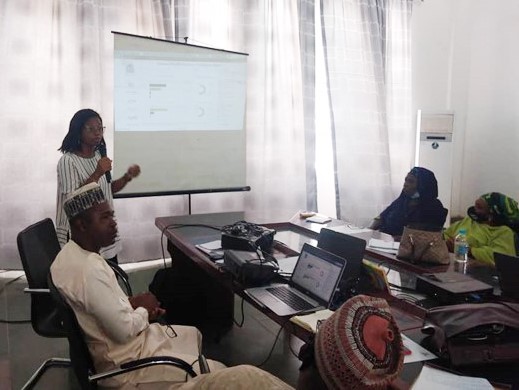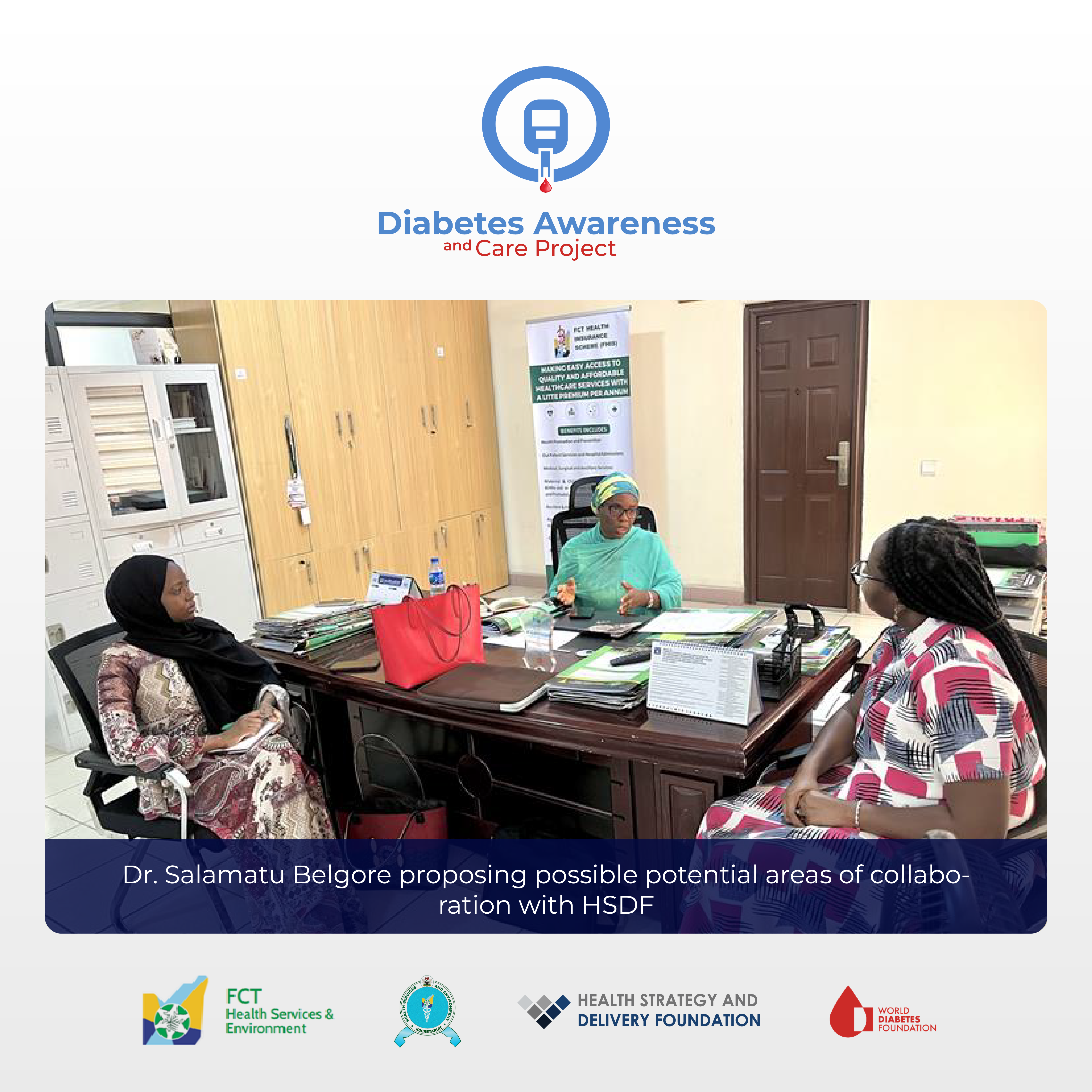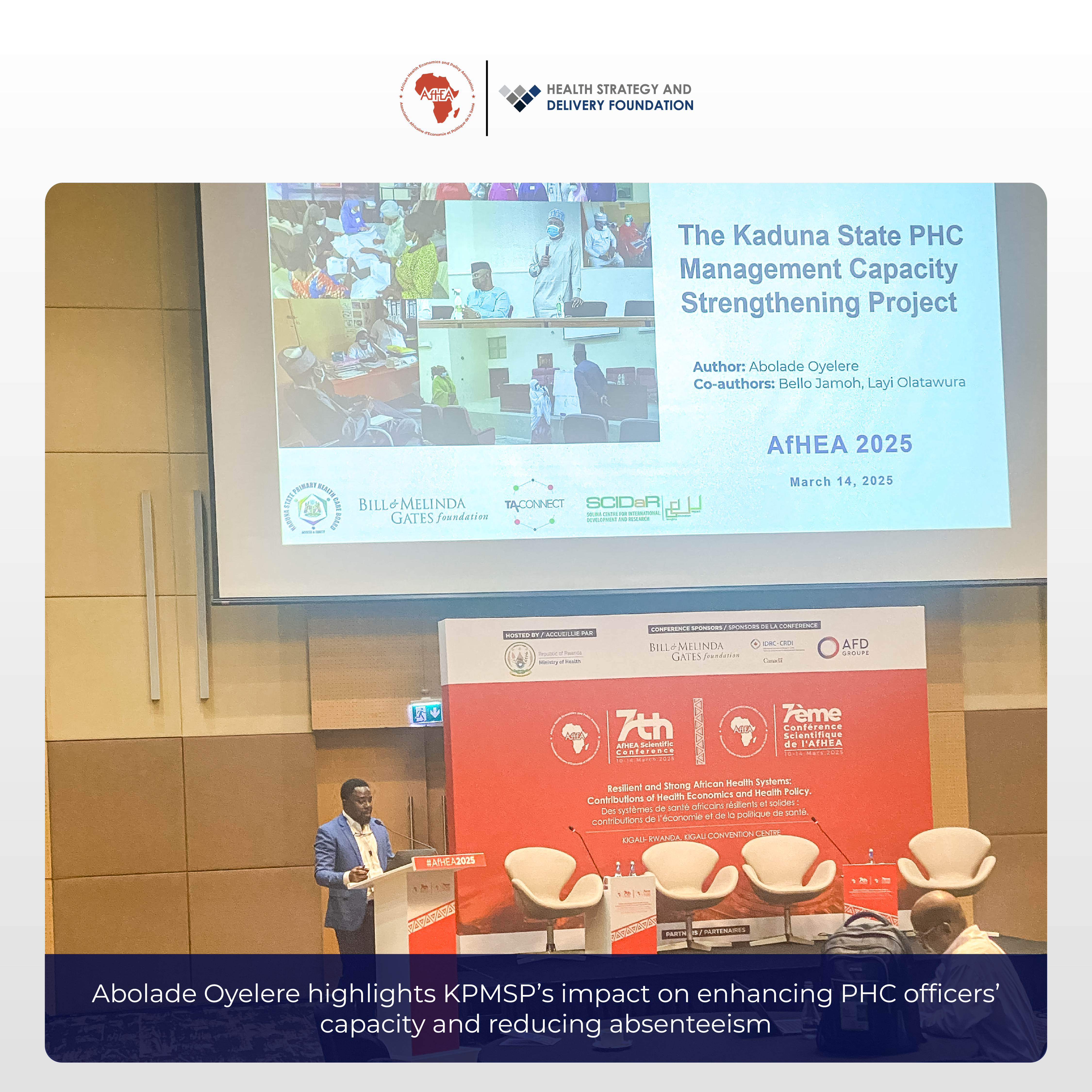HSDF Presents the Novel Automated Control Room Process to Stakeholders in Niger State
Health Strategy & Delivery Foundation (HSDF), presented the novel automated control room approach to Niger State’s LGA Monitoring & Evaluation (M&E) officers during a quarterly validation meeting in the state on 31st March 2021.
The meeting was held at the conference hall of the Niger State Ministry of Health, Minna. It aimed to enlighten the participants on the automated system and inform them of the need to realign on novel quality measures in the state. HSDF is piloting this process through capacity-building sessions, targeted at adopting and sustaining the automated system.
Niger State, in partnership with HSDF, is ensuring that the culture of routine health data management is maintained in the state such that relevant health data is available, complete, and valid. This in turn improves the quality of health data that is available in the state.
Although Niger state has maintained good reporting rates on the National Health Management Information System (NHMIS) over the years, a review of its key program indicators reported by the health facilities in the state, revealed several issues with the quality of reported data. This informed the decision to launch a data quality-focused control room in 2017 to track and address these challenges.
The control room is a government-led and partner-supported intervention that seeks to improve the quality of health data on the District Health Information Software2 (DHIS2) by ensuring that errors and inconsistencies on the uploaded data are flagged on time and corrected before validated data is submitted onto the DHIS2 platform. This process is currently being implemented in Lagos, Kano, Kaduna, and Niger states. It has been lauded as largely successful in ensuring reported data are reviewed for data quality issues within the reporting timeline.
In the past, the Niger State Control Room drew stakeholders from departments and agencies of the State Ministry of Health and convened them physically with the objective of tracking, identifying, and resolving data issues real-time. The implementation was mostly manual and required five to seven days to complete. The State M&E officers had to manually download data from DHIS2 monthly, aggregate by LGAs, and then paste the downloaded data on a prepared control room Microsoft Excel template containing validation rules to scrutinize the data and flag errors. The flagged errors were then reviewed, shared with LGAs, and followed up with calls to the LGAs and health facilities to effect necessary correction as it affects the data they reported.
This process was mostly inefficient, prone to human errors from the manual processes, has version control challenges with the multiple files, and sub-optimal visibility as the files are resident on the computers of the M&E officers. To address these challenges, HSDF in collaboration with an external consultant developed an automated DQA control room web-based tool that can be adapted for different states in Nigeria using the HSDF platform.
The objectives of the automated control room process include reducing the completion timeframe of the control room process, providing real-time feedback to data entry officers, and reducing the discrepancies that exist in the excel-based desktop data validation tool.

Recent News
Grants and Business Development Specialist
We are seeking a highly motivated and experienced Grants and Business Development Specialist to join our organization. The successful candidate will be responsible for identifying funding opportunities, developing grant proposals, and fostering partnerships with potential donors and stakeholders (regional and global). This role plays a vital part in securing funds and resources to support our organization’s mission and projects.
Apply NowPublic Health Consultant, Guinea
The consultant (working with the Accelerator team) will collect results from the tool, organize a meeting with stakeholders to discuss results from the tool, and produce a report on key findings and recommendations from the tool to be shared publicly.
Apply NowPublic Health Associate, Senegal
We are currently in search of an experienced Public Health professional in Senegal to work on the anticipated Nutrition Capacity Development and Financing Platform and provide technical assistance to elevate nutrition financing and strengthen local capacity to support these efforts. The Associate must be bilingual (English and French).
Apply Now


